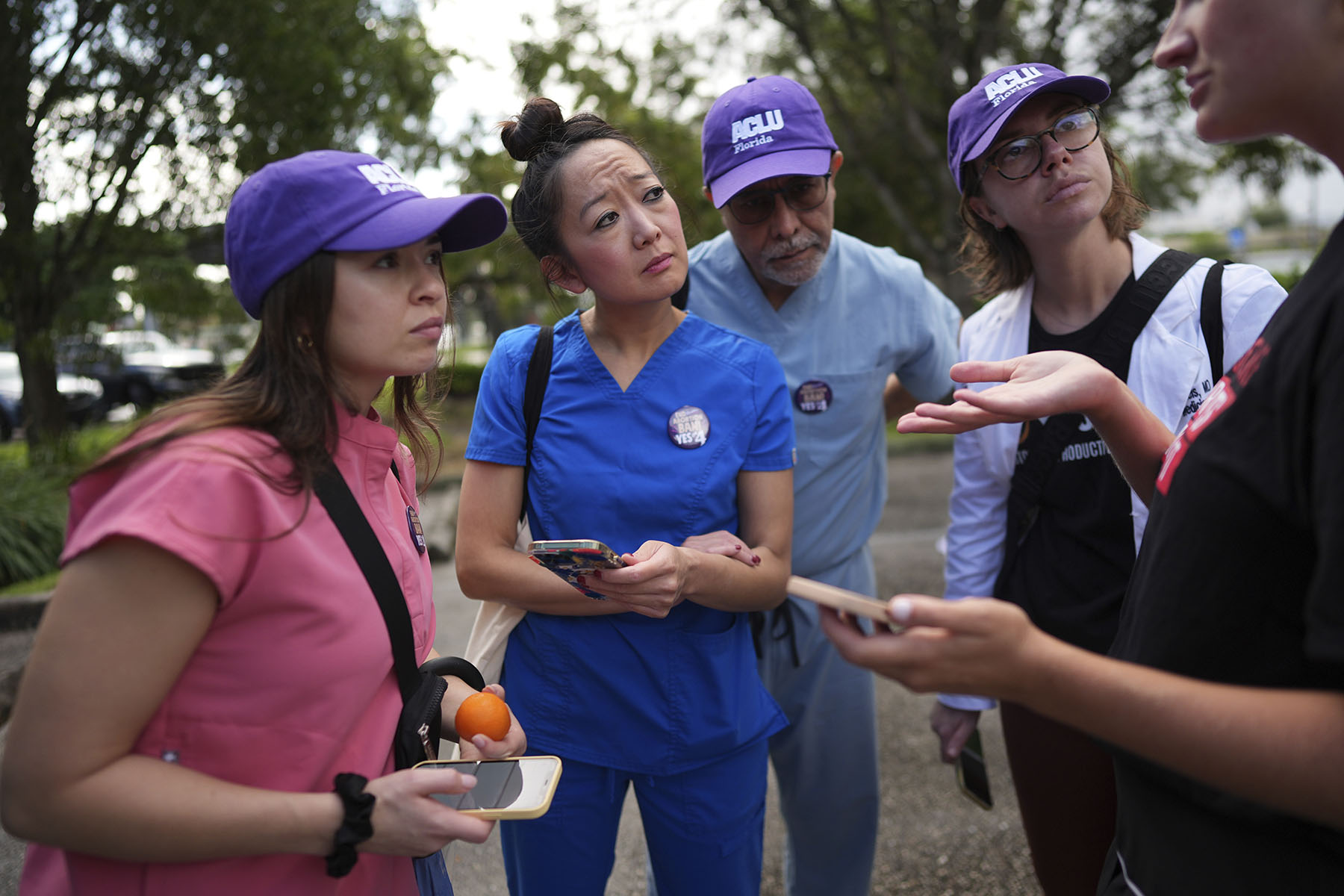People across the country cast votes to restore abortion access while also siding with President-elect Donald Trump at the top of the ticket. In the first presidential election since Roe v. Wade was overturned, many counties across the country saw a significant red shift this year. Nearly every demographic was more supportive of Trump than in 2020, despite widespread support for reproductive rights and Vice President Kamala Harris centering the issue in her campaign.
Abortion ballot measures succeeded in 7 of the 10 states that had one this November. Examining the results of those initiatives in several states where Trump won shows that Democrats were not able to convince large swaths of the electorate that protecting abortion rights rested on electing Harris.
More people voted for the ballot measures than Harris in every county in Nevada, and all save one in Florida. Efforts to secure reproductive rights in Nevada succeeded, while Amendment 4 in Florida fell just short of the state’s 60 percent threshold to pass.
In Florida and Nevada, the counties where a majority of people voted in favor of abortion ballot measures moved further toward Trump this year than those that voted against them. Compared with 2020, Trump gained an average of 4 points in Florida counties where the majority voted to pass Amendment 4, while counties opposed moved an average of 3 points.
“One of the values we really held true to this cycle was not making it a partisan conversation and making it about health care access,” said Lauren Brenzel, who ran Florida’s Yes on 4 campaign. “It isn’t partisan on the individual level.”
Nevada counties that voted to pass the state’s abortion ballot measure also moved more towards Trump this year than those that did not. In Clark and Washoe, the largest counties in the state, the measure won handily with over 60 percent of the vote in each. While Harris is leading both counties at the time of publication, Trump’s margins have increased since 2020.
Polling has shown that voters do not see their support for Trump at odds with their support of abortion rights. The September 19th News/SurveyMonkey poll found 37 percent of registered voters who planned to vote for Trump supported abortion access at least most of the time, including 41 percent of women.
Though most people who favored abortion rights voted for Harris, Trump also boasted relatively strong support from those voters — 40 percent of those who said abortion should be legal in most cases and 15 percent of those who support legality in all cases — per an analysis of AP VoteCast data by KFF, a nonpartisan health policy research, journalism and polling organization. The data suggests that Trump’s claims he would not sign a national abortion ban that anti-abortion leaders have asked for persuaded at least some voters, said KFF pollster Ashley Kirzinger.
“For those voters that wanted abortion access, it’s not their most important voting issue and they trust former President Trump on his word that he will leave it up to the states,” Kirzinger said. “In miraculous form, Trump was able to stay on message on abortion — and where he stood on abortion and his message about leaving it up to the states was really effective.”
Since Roe v. Wade fell in 2022, abortion rights consistently won when voters got the chance to weigh in directly — a pattern that only ended this Election Day, with losses in Florida, Nebraska and South Dakota. Kirzinger said those earlier wins could have convinced voters who support abortion legality that leaving the question up to the states would mean access was secure — and that voting for Trump wouldn’t threaten abortion rights.
-
Read Next:
Abortion wasn’t the top issue for much of the electorate, despite Harris staking her campaign on reproductive rights. It was a chief concern for many women and LGBTQ+ people, but polling consistently showed the economy ranked as the highest concern for voters overall. Only 12 percent of Trump supporters in favor of abortion access ranked it as one of the top five issues driving their vote, per a national survey fielded in April by nonpartisan public opinion research firm PerryUndem. Eighty-two percent cited the economy and cost of living as a factor.
“Remember, Trump said he’d veto any abortion ban. His supporters trust him and believe he’ll follow through on what he says,” wrote Tresa Undem, co-founder of PerryUndem, in a post-election analysis.
Trump’s stance on abortion is not as clear as his messaging suggested. Former advisers to Trump have voiced support for using federal agencies such as the Food and Drug Administration to limit abortion nationally, and even for reviving an 1800s anti-obscenity law known as the Comstock Act to ban the procedure. But many voters haven’t connected that to Trump personally.
“The lack of understanding around abortion care in general is so hard,” Brenzel said. “Part of what we saw this election is people really feel like the Democrats — I’m not speaking to ballot initiatives — that the Democrats are hyperbolic, and that nothing’s going to be that bad.”





